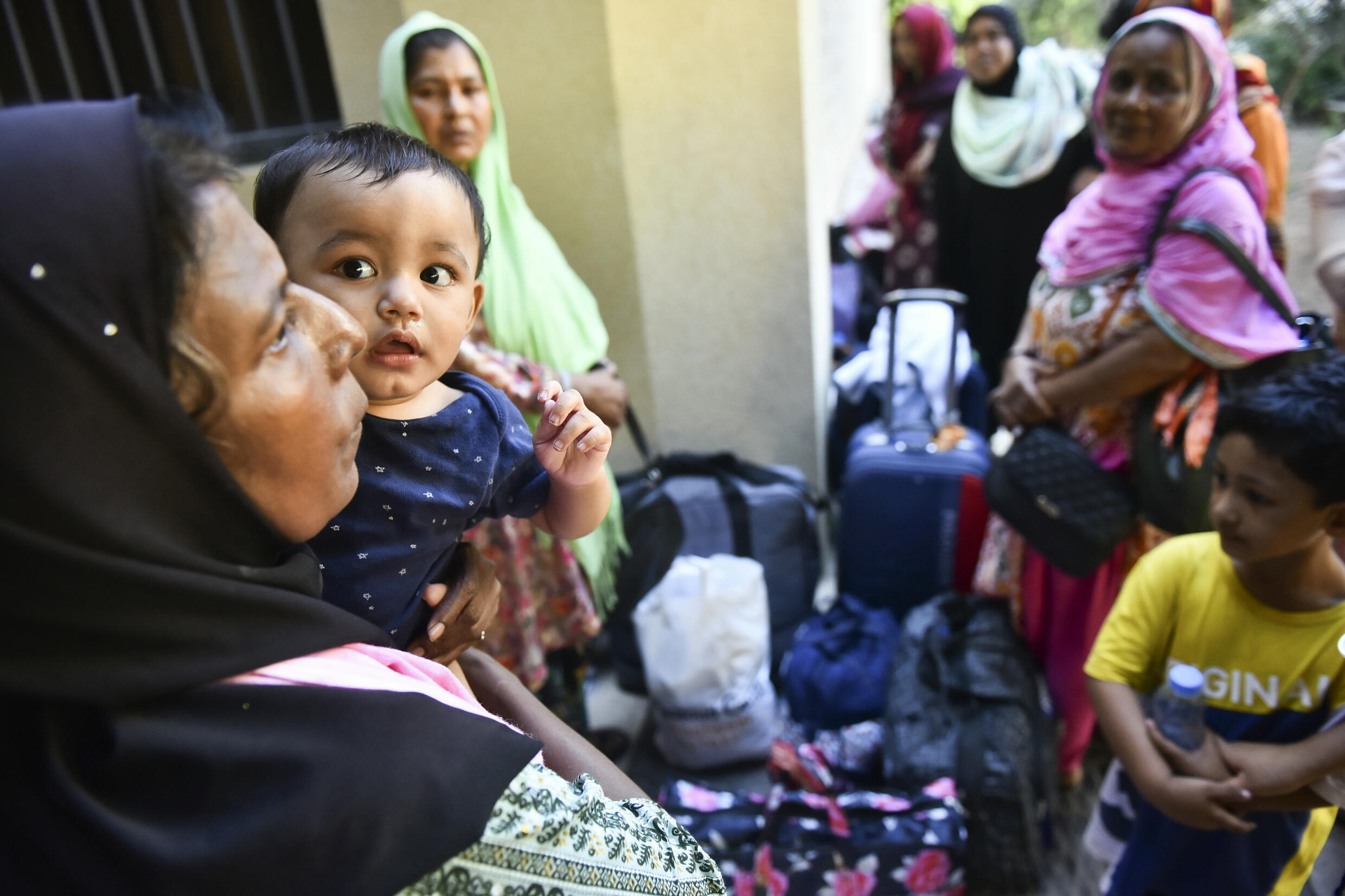Migrant workers have gathered in Ramlet El Bayda, near the Corniche in Beirut, sleeping by the sea with their belongings packed in plastic bags after fleeing the Israeli attacks. Many were abandoned by their employers, left to face the war alone.
Some African domestic workers told Megaphone News that their employers fled the bombardments, leaving them on the streets. Others were instructed to remain and care for homes in bombed areas, putting their lives at risk.
“We are totally abandoned,” said Viany de Marceau, a former domestic worker from Cameroon, in an interview with The News Humanitarian.
Similar stories are circulating within migrant worker and activist circles, though they could not be independently verified.
Migrant workers in Ramlet El Bayda told Megaphone News that many are without money, with some individuals lacking their phones or identity documents, which they had given to their Lebanese employers before the war escalated. This has also left some migrant workers with few options to flee, according to The New Humanitarian.
At least one domestic worker, a young woman from Gambia, was killed last week in an Israeli airstrike on her employer’s home in southern Lebanon, according to Reuters.
According to Prime Minister Najib Mikati, nearly one million people in Lebanon are internally displaced, with the UN Refugee Agency describing the situation for civilians as “dire.” Almost 100,000 have fled to Syria.
Amid the mass exodus, migrant domestic workers from countries like Kenya, the Philippines, and Ethiopia find themselves trapped, unable to escape the deadly airstrikes.
The Kafala system ties workers to abandoned employers
The Kafala system is the only legal option for migrant workers in Lebanon, where employers sponsor workers and control their contracts and conditions, according to Doctors Without Borders.
Some migrant workers trapped under the Kafala system have been abandoned by their employers or forced to remain in their homes in South Lebanon and the Bekaa due to Israel’s ongoing strikes in these areas, according to the fundraising appeal “Voices of the Unseen,” published by a coalition of Lebanese grassroots organizations.
Without documents and with only a limited support network of fellow migrant workers in a country now at war, some are attempting to find new jobs. However, the Kafala system legally binds them to the employers or agencies that abandoned them, as reported by The New Humanitarian.
Lebanon is home to approximately 176,000 migrant domestic workers, primarily women. As of July, over 28,000 of these workers were residing in southern Lebanon and the Bekaa Valley, while nearly 33,000 more were in Beirut, all in areas that are now heavily bombed.
However, it is still too early to determine the exact number of migrant workers who have been forcibly displaced or who remain in danger.


